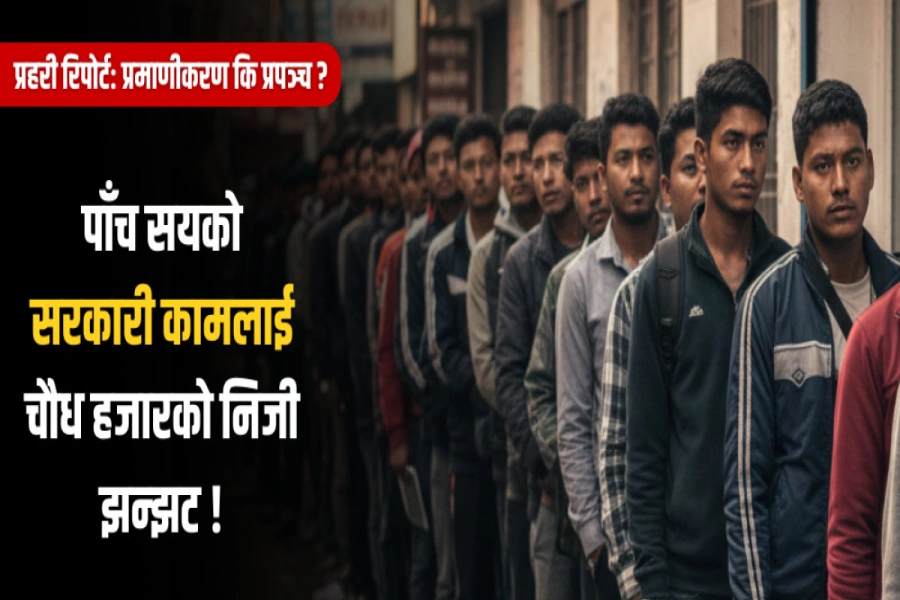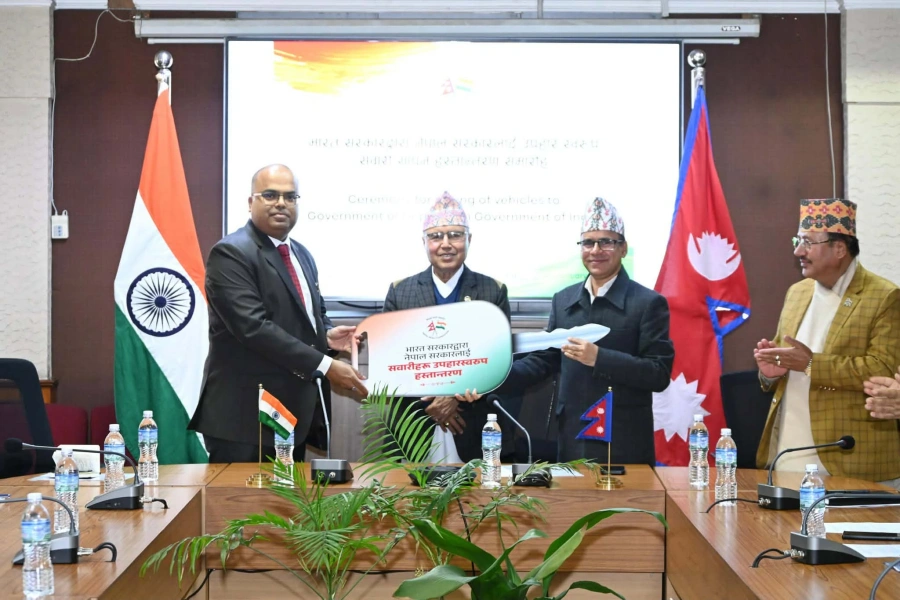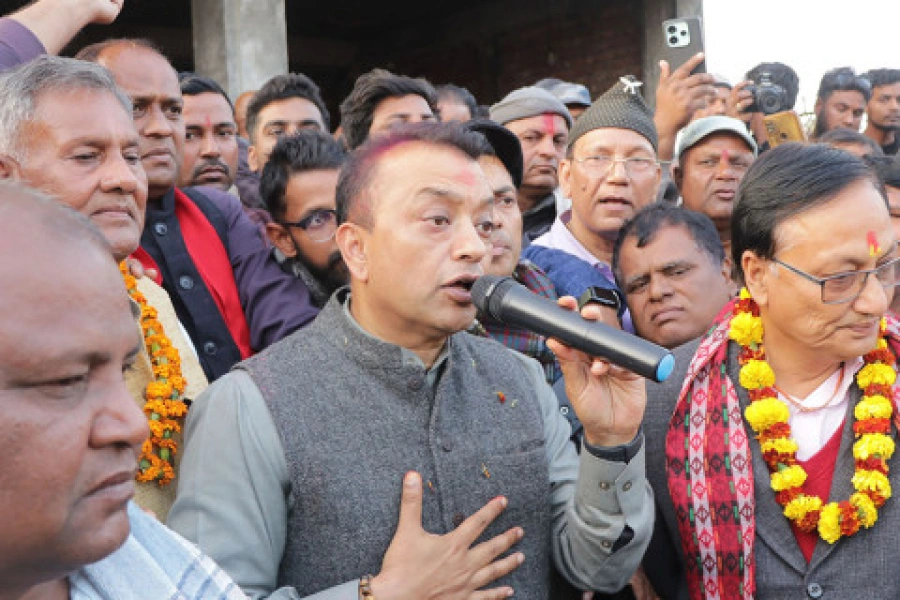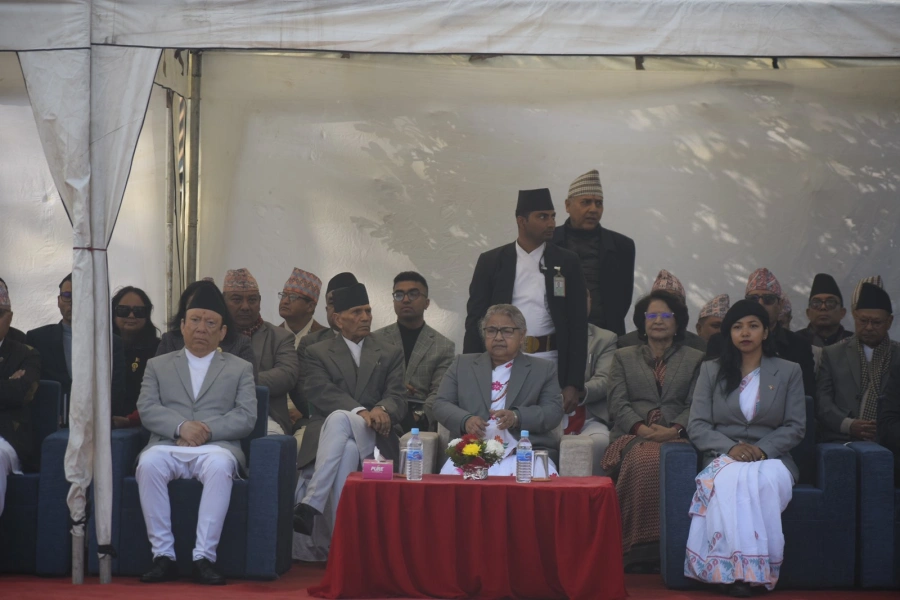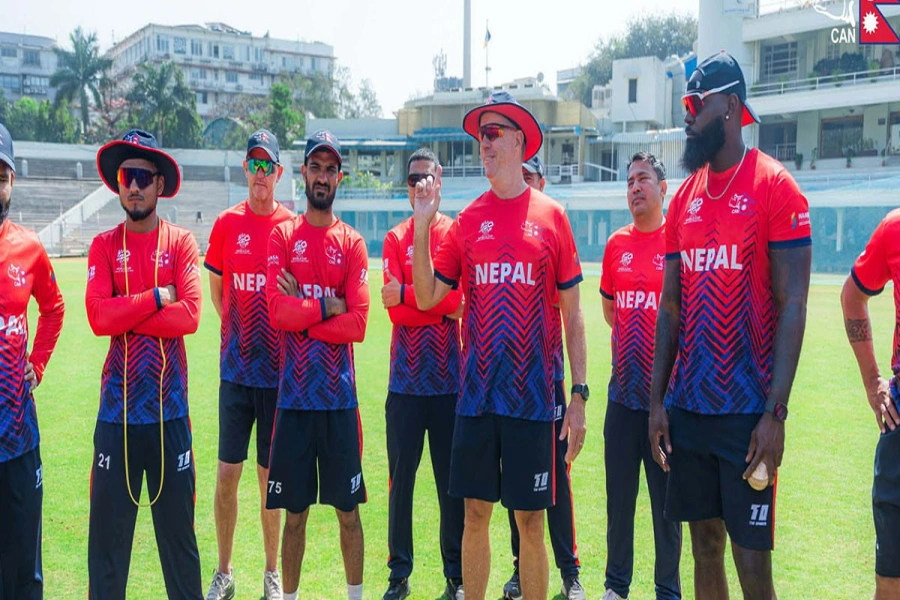KATHMANDU, Dec 27: On a random September evening, 24-year-old Sukriti Sherchan (name changed) took a bus from Sundhara. Like everyday, she took out her ear phones to tune to her phone playlist. Tucked herself to the second-row window seat, she sat facing the window. The moment she spared a glance around the bus, a man next to her exhibited his private part. 'I did not know how to react. It filled me with disgust and fear.
The man then instantly rushed to the front seat. After some splitting seconds as I summoned up the courage to scream at him, he hurriedly jumped off the bus,” says Sherchan.
27-year-old Tshesang Karki (name changed) encountered sexual harassment while she was commuting to college, from Chabahil to Bhaktapur. After minutes of waiting, a jam-packed bus finally arrived leaving her with no other option than to board the bus. As she got in, she found herself buried in a pool of passengers. "When the bus reached Koteshwor, a man tentatively in his 40’s groped my private parts. I could not tolerate and threatened him to call the police. He utterly denied it and let his disguised self take the benefit of the jam-packed bus. Before the moment could gain attention of many, the man got off the bus,” expresses Karki.
As per the Country Criminal (Code) Act 2017, Section 224(1) No person shall commit, or caused to be committed, sexual harassment to another person. Complying with it, the Metropolitan Police Commissioner’s Office (MPCO), Ranipokhari launched a sting operation to monitor and discourage sexual harassment on public transport from August 2, 2017. The operation is regulating under different phases in every six months. As per the statistics released by the Women and Children Cell under MPCO, 52 suspects under Phase I and 144 under phase II were arrested for obscenity and sexually harassing female passengers on public places including public transport. 39 have so far been arrested under the ongoing phase III.
Transport entrepreneurs suggest ways to improve public transpor...

We have deployed a team of 86 plainclothes cops especially on buses operating on all routes of Kathmandu, Bhaktapur and Lalitpur. 36 of them are especially deployed for the operation while the rest monitor pickpockets inside public transport,” says DSP Anjana Shrestha, Women and Children Cell, MPCO.
Although the operation has so far nabbed culprits while harassing on the spot, many female passengers seem reluctant to report such obscene activities in the first place. “All the suspects under the operation are arrested by the police team deployed in public places and buses. Despite the operation having launched a year ago, we have barely received complaints via the toll-free number and Hamro Police App that are for public use” adds Shrestha.
The police units in plain clothes disperse accordingly in various routes especially monitoring the buses that ride in busy thoroughfares of Kathmandu, Lalitpur and Bhaktapur. In most of the cases, the perpetrators are arrested while harassing female passengers on commute. However, if in case a person files complaint via toll free number with an early and detailed description of the vehicle number, the nearby police beat can be informed to immediately arrest the culprit.
Nonetheless, criminal conducts can be deterred by a range of sanctions. The laws and regulations can be fully implemented through binding the citizens by the code of conducts. When paying a closer observation, it draws attention to the fact that many females are sexually abused in jam-packed public transports. This implies to a possibility of minimizing such crimes to greater extent if the transports only board a fixed number of passengers. Acknowledging the plight of public vehicles around the capital, the policies that restrict them of loading passengers heavily has become a pressing need.
“The survey on public vehicle’s capacity to carry a particular number of passengers is on the process. The Department may take about two weeks to come up with conclusions,” confirms Gokarna Prasad Upadhyay, Information Officer at Department of Transport Management (DoTM). “Any type of sexual harassment taking place in public vehicles could be curbed if vehicles carry passengers in required numbers. However, regulating this policy could worsen traffic congestion if we come to abrupt decisions. Therefore, we have conducted the survey that meticulously assesses the cause-and-effect of the plan. The conclusion will further determine the regulations to be adopted by the department,” adds Upadhyay.
Meanwhile, MPCO and DoTM are pushing efforts on sensitizing public to condemn any form of criminal activity by speaking up in the first place. “There are many mediums including helplines and Hamro Police App to report to such criminal offenses. I believe every individual should be vocal on this issue to discourage such activities,” expresses Shrestha.
Acknowledging the power of one’s voice, Sherchan affirms, “Frotteurs and harassers mostly take advantage of crowded places to physically abuse us. If we raise our voices against it, the crowd is the multitude to whom we deliver a rigid message of our denouncement and intolerance towards such acts.”






